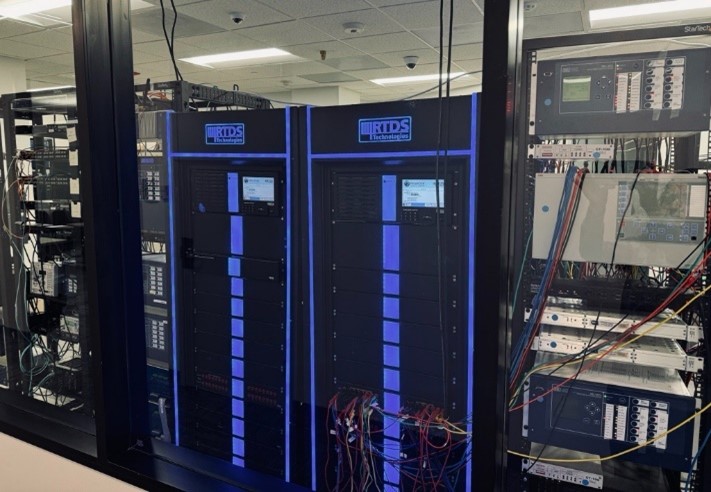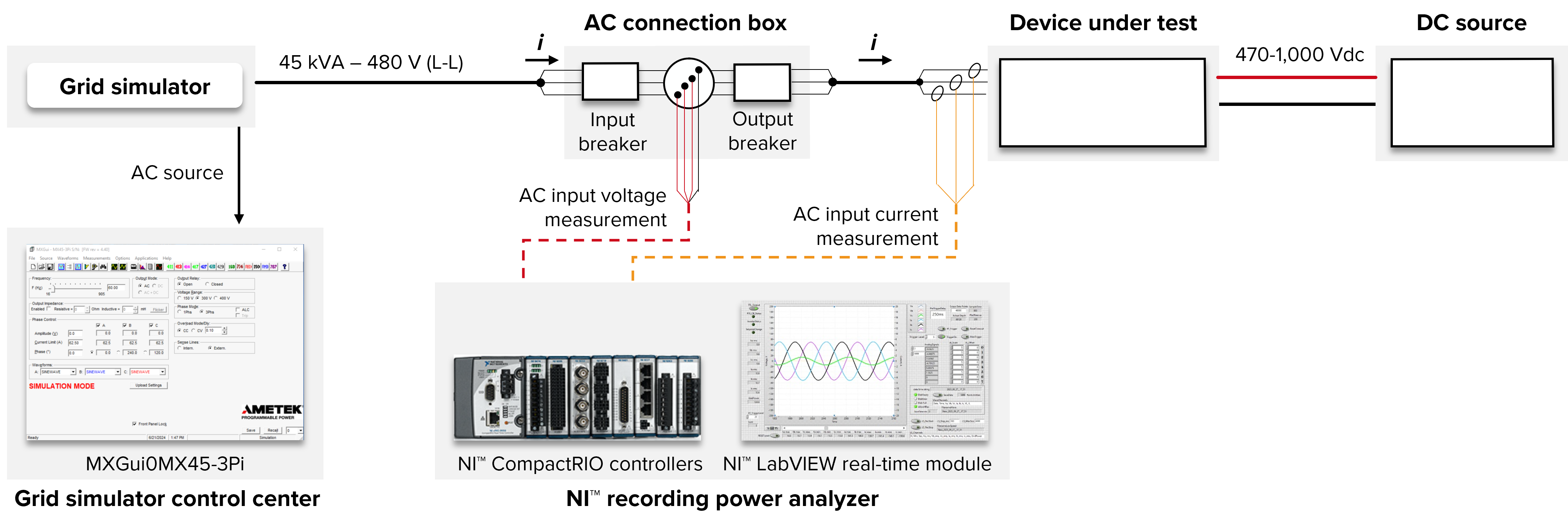Overview
Quanta Technology’s IBR Operational Readiness program offers a comprehensive suite of services tailored to meet the evolving needs of the energy sector, ensuring compliance, performance, and reliability. This use case highlights our cutting-edge solutions designed to address critical challenges faced by U.S. utilities, developers, manufacturers, and national labs.
Services Provided
- Modeling, studies, and training: Expert guidance on system operations and performance.
- Grid compliance: Ensuring adherence to NERC, FERC, and other regulatory standards.
- Protection and control: Safeguarding power systems through rigorous protection protocols.
- Testing and field support: On-site testing and validation for seamless field implementation.
- Interconnection applications and studies: Streamlining grid connections for optimal performance.
- Transmission/distribution planning analysis: Enhancing grid efficiency through strategic planning.

Key Benefits
- Feasibility studies and impact assessment: Early identification of potential issues to prevent costly errors.
- Reliability analysis: Ensuring consistent system reliability under diverse conditions.
- System performance evaluation: In-depth assessment to optimize system operations.
- HIL testing for IBR settings: Verification of IBR settings through Hardware-in-the-Loop (HIL) testing, reducing field implementation risks.
Background Information
Problem statement:
Prior to implementing our solution, customers struggled with verifying inverter fault currents and dynamic performance and faced challenges in developing accurate BESS/PV/Hybrid plant models, coordinating protection, and conducting ancillary service studies.
Customer/industry context:
Our clients include U.S. utilities, developers, manufacturers, and national labs, all of whom face increasing pressures to ensure operational readiness in a rapidly changing energy landscape.

Solution Overview
We deliver a robust solution combining advanced testing and modeling to ensure the operational readiness of IBRs.
- PHIL testing: PHIL testing is employed to accurately verify inverter fault currents and dynamic performance, mitigating risks before field deployment.
- BESS/PV/hybrid plant model development: We develop and validate protection settings and EMT models, ensuring compliance with ISO standards and enhancing overall system performance.
Implementation process:

Technologies used:
- PHIL testing
- Advanced EMT simulations.

Workflow/Process

Our solutions are applied in the following scenarios:
- Modeling, studies, and training
- Grid compliance (NERC, FERC, etc.)
- Protection and control
- Testing and field support.
Results and Benefits
Quantitative results:
- Inverter testing: Comprehensive testing across fault current, power quality, and active/reactive power performance metrics.
- Model validation: Achieved a 97% accuracy rate in EMT model validation, ensuring precise and reliable results.
Qualitative benefits:
- Regulatory compliance: Completed inverter testing, EMT model development, and verification in strict accordance with ISO standards, streamlining compliance.
- Operational efficiency: Enhanced IBR/protection settings pre-field implementation, reducing potential risks and improving overall system reliability.

Customer testimonials:
- Customer 1: “Thank you for the great support with the PSCAD model development scope of this project. The impact on our operations has been significant.”
- Customer 2: “Thank you, Quanta team. You have been amazing to work with, and I look forward to future collaborations. Your expertise made a real difference.”
- Customer 3: “The study report looks fantastic, especially the feedback on identified issues, which is invaluable for future interconnections. Great job to your team! I look forward to your presentation on this report!”
Challenges and Lessons Learned
Challenges faced:
- Customized test beds: Developing unique test beds for each OEM product and conducting full-power tests posed significant challenges.
- Model revisions: Multiple rounds of EMT model revisions were necessary to achieve the desired accuracy.
Solutions to challenges:
- Flexible test bed design: Adapted test beds to accommodate specific customer and OEM needs, ensuring comprehensive testing.
- Proactive communication: Maintained open lines of communication with developers to facilitate timely revisions and ensure project success.
Lessons learned:
- Insights on inverter testing: Gained valuable insights into the nuances of inverter testing and validation for ISO compliance, enabling us to enhance our processes.
- Importance of pre-field EMT studies: Performing thorough EMT studies before field implementation can lead to significant cost savings and operational efficiencies.
Conclusion and Next Steps
Our IBR Operational Readiness program has demonstrated its value through advanced testing, rigorous model validation, and seamless implementation processes. These solutions not only address current challenges but also position our clients for future success in a dynamic energy landscape.
Contact your local sales representative or click the button below to learn how our expertise can enhance your operations and ensure your systems are ready for the future. Schedule a consultation to discuss how we can tailor our solutions to meet your specific needs.

